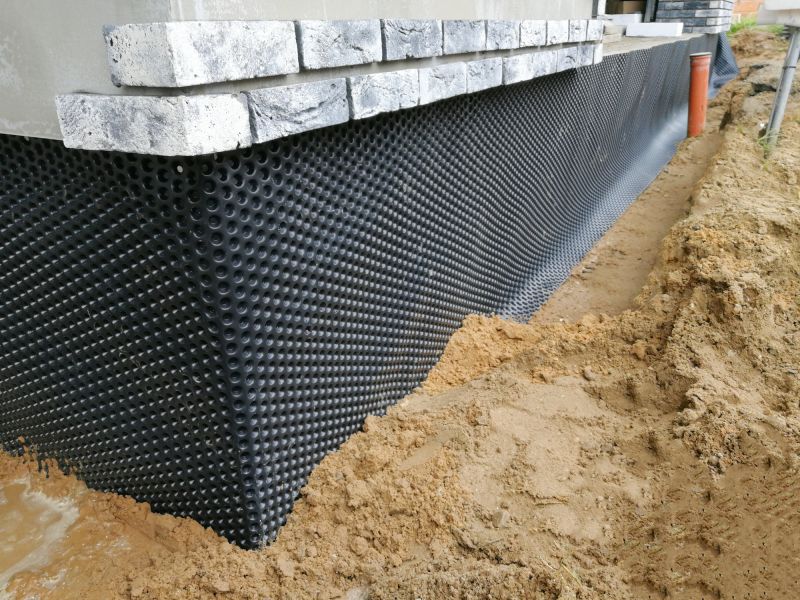Top Waterproofing Products to Protect Your Property Effectively
Discover leading waterproofing solutions designed to safeguard your home or business from water damage and leaks.
 Waterproofing products are essential for protecting various surfaces and structures from water infiltration and damage. They are used in a wide range of applications, including basements, roofs, foundations, and outdoor surfaces. Choosing the right waterproofing solution depends on factors such as the type of surface, exposure conditions, and the specific requirements of the project. Proper application and selecting appropriate products can help extend the lifespan of structures and prevent issues like leaks, mold, and structural deterioration.
Waterproofing products are essential for protecting various surfaces and structures from water infiltration and damage. They are used in a wide range of applications, including basements, roofs, foundations, and outdoor surfaces. Choosing the right waterproofing solution depends on factors such as the type of surface, exposure conditions, and the specific requirements of the project. Proper application and selecting appropriate products can help extend the lifespan of structures and prevent issues like leaks, mold, and structural deterioration.
Top Overall Option
Liquid Waterproofing Membrane
Liquid waterproofing membranes are versatile and easy to apply, forming seamless, flexible barriers that adapt well to various surfaces. They are suitable for roofs, foundations, and balconies, offering a durable layer of protection against water ingress. Their ease of application, often with brushes or rollers, makes them a popular choice for both DIY enthusiasts and professionals. Proper surface preparation and multiple coats can enhance their effectiveness, providing a reliable solution for diverse waterproofing needs.
Types of Products For Waterproofings
Liquid Waterproofing Membranes
Fluid coatings that create seamless, flexible barriers on various surfaces.
Bituminous Coatings
Asphalt-based coatings ideal for roofing and foundation waterproofing.
Rubberized Sealants
Flexible sealants used to fill cracks and joints to prevent water intrusion.
Polyurethane Coatings
Durable coatings suitable for roofs and decks with excellent elasticity.
Cementitious Waterproofing
Waterproof cement-based products often used in basements and tunnels.
Waterproofing Membrane Sheets
Pre-formed sheets made from rubber or bitumen for easy installation on foundations.
Crack Injection Sealants
Specialized products for filling and sealing cracks in concrete and masonry.
Waterproof Paints and Coatings
Paints formulated with waterproofing properties for walls and surfaces.
Hydrophobic Sealants
Silicone or acrylic-based sealants that repel water on surfaces.
Spray-On Waterproofing
Aerosol or spray coatings that provide quick, uniform waterproof layers.
Epoxy Waterproof Coatings
High-strength coatings used on concrete and metal surfaces for waterproofing and protection.
Hydrostop Solutions
Specialized products designed for sealing and waterproofing in construction projects.
Sealant Tapes
Self-adhesive tapes used to seal joints, seams, and cracks effectively.
Waterproofing Admixtures
Additives mixed into concrete or mortar to improve water resistance.
Liquid Rubber Coatings
Flexible, rubber-like coatings ideal for roofs, decks, and gutters.
Popular Choices
Widely used for their seamless application and adaptability across surfaces.
Commonly selected for roofing and foundation projects due to their durability.
Popular for sealing joints and cracks in various building applications.
Favored for outdoor applications where elasticity and weather resistance are needed.
Chosen for foundation and basement waterproofing due to ease of installation.
Effective for repairing and waterproofing existing cracks in concrete.
Popular for wall surfaces to add a water-resistant layer.
Convenient for quick coverage on roofs and outdoor surfaces.
Commonly used in industrial settings for durable, waterproof protection.
Valued for sealing joints and seams in construction and repair projects.
Popular for surface water repellency applications.
Chosen for their flexibility and waterproofing on roofs and decks.
Different waterproofing products are designed for different purposes, such as liquid coatings, sealants, membranes, or barriers. Some products are formulated for interior use, providing a vapor barrier or sealing cracks, while others are suitable for exterior applications, offering durable protection against water penetration. It is important to consider the compatibility of the product with the surface material and the environmental conditions it will face.
When selecting waterproofing materials, factors like ease of application, drying time, durability, and safety should also be evaluated. Proper surface preparation is crucial to ensure adhesion and effectiveness of the waterproofing layer. Regular maintenance and inspection can help identify potential issues early and maintain the integrity of waterproofed surfaces over time.
Overall, investing in the right waterproofing products can contribute significantly to the longevity and safety of buildings and outdoor structures. Whether for residential, commercial, or industrial projects, understanding the variety of available options helps in making informed decisions that suit specific needs and conditions.
Key Buying Considerations
- Determine the specific surface or structure to be waterproofed and choose a product suitable for that material.
- Assess environmental exposure, such as rain, UV rays, or temperature fluctuations, to select durable options.
- Consider ease of application—whether it requires brushes, rollers, sprays, or professional installation.
- Check drying and curing times to plan application schedules effectively.
- Evaluate the flexibility and elasticity of the product, especially for surfaces prone to movement or cracking.
- Review compatibility with existing materials and previous waterproofing layers.
- Prioritize products with strong adhesion properties for long-lasting protection.
- Understand the maintenance requirements and lifespan of the waterproofing solution.
- Look for products that are resistant to chemicals, salts, or other environmental factors relevant to your location.
- Consider safety features, such as low VOC content and non-toxicity, especially for indoor applications.
- Review manufacturer instructions carefully to ensure proper application and coverage.
- Factor in budget constraints while balancing quality and durability.
- Check for warranties or guarantees offered by manufacturers for added peace of mind.
- Research local building codes or regulations that may specify certain waterproofing standards.
- Determine if professional installation is recommended or if the product is suitable for DIY projects.
